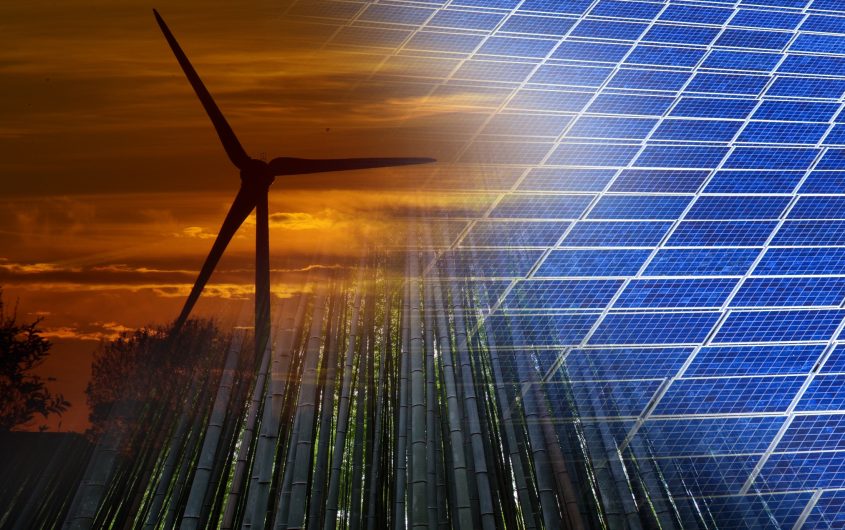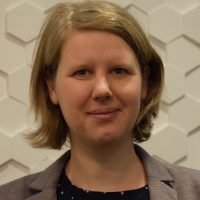
Public Domain via pxhere
Changing Resource Needs for a Clean Energy Future: Transatlantic Implications – Part II

Kirsten Verclas
ORISE Science and Technology Policy Fellow
Kirsten Verclas is an ORISE Science and Technology Policy Fellow. Previously, she was a Program Manager in the International Department of the National Association of Regulatory Utility Commissioners (NARUC) working on regulatory partnerships in Africa under a NARUC-U.S. Agency for International Development (USAID) Cooperative Agreement. Before coming to NARUC, Ms. Verclas was a Senior Program Manager at the American Institute for Contemporary German Studies (AICGS) at Johns Hopkins University, where she managed the Institute’s grant projects. She initially joined AICGS as Executive Assistant in 2003 and started working in the Institute’s Research Program in 2008. Ms. Verclas has written extensively on energy and climate as well as security policy in the transatlantic context. She holds a BA in International Relations with a Minor in Economics from Franklin and Marshall College and an MA in International Relations with a concentration in Security Studies from The Elliott School at The George Washington University. She also earned an MS in Energy Policy and Climate from Johns Hopkins University in August 2013.
She is a 2017-2018 participant in AICGS’ project “A German-American Dialogue of the Next Generation: Global Responsibility, Joint Engagement,” sponsored by the Transatlantik-Programm der Bundesrepublik Deutschland aus Mitteln des European Recovery Program (ERP) des Bundesministeriums für Wirtschaft und Energie (BMWi).

Sonja Thielges
German Institute for International and Security Affairs (SWP)
Sonja Thielges is a Geoeconomics Non-Resident Fellow. She was a DAAD/AGI Research Fellow from mid-March to mid-May 2019 and explored foreign policy interests in Germany and the United States related to the countries’ energy transitions. In Germany, she is a researcher at the Research Cluster Climate Policy and Politics at the German Institute for International and Security Affairs (SWP) in Berlin. Her research interests include climate foreign policy, the global energy transition and industrial decarbonization. Her research has been published in studies, policy papers, online blogs, and academic publications.
Prior to SWP, Sonja was head of the Industrial Decarbonization research group at the Research Institute for Sustainability (RIFS, formerly Institute for Advanced Sustainability Studies, IASS) in Potsdam. She was a visiting researcher at the University of Michigan’s Center for Local, State, and Urban Policy in Ann Arbor in 2014 and previously also worked on projects at the Environmental Policy Research Centre (FFU), the Institut für Europäische Politik (IEP) Berlin, and the Centre International de Formation Européenne (CIFE). In 2017/2018, Sonja was a participant in the AGI project “A German-American Dialogue of the Next Generation: Global Responsibility, Joint Engagement,” sponsored by the Transatlantik-Programm der Bundesrepublik Deutschland aus Mitteln des European Recovery Program (ERP) des Bundesministeriums für Wirtschaft und Energie (BMWi). She completed an MA in North American Studies, Political Science, and Modern History at Freie Universität Berlin and Indiana University Bloomington and holds a PhD in political science from Freie Universität Berlin. Her PhD thesis studied climate policy discourses in the U.S. Rust Belt states.
Transatlantic Opportunities for a Clean Energy Future
As Part I of this blogpost highlights, the transatlantic partners face some risks and uncertainties when it comes to the resources necessary for clean energy technologies. Considerable sustainability issues in the mining processes of these materials in other countries as well as volatile prices are some of those challenges. As leading markets in green technology, the U.S. and Germany are ideally positioned to prepare for the implications of cleaner energy systems and to use their strengths to jointly move forward. Among the opportunities for transatlantic cooperation in this critical field are joint research efforts to improve efficiency and alternatives, increased market transparency, and the development of international standards.
Collaborating on Research Projects to Improve Efficiency and Finding Alternative Resources
Lithium-ion batteries in electric vehicles are expected to last for about ten years, thus the first generations of EV batteries will need to be replaced soon. Recycling of key components would decrease the necessity to continuously mine for additional resources, thus increasing sustainability. Additionally, recycling may in fact require less energy than the original mining and refining process. Recycling in this field, however, is still underdeveloped and involves the complex challenge of re-extracting the materials when there are often only tiny amounts of the products. Research efforts in the U.S. and Germany are examining how recycling strategies could be implemented technologically and how they could be made more economical. More R&D efforts are required that also take into consideration how the production process itself could be shaped in order to make recycling easier.
Countries have also increased research activities to find alternatives for certain critical materials to reduce the import dependency from controversial country suppliers. One venue of research German companies are pursuing is replacing rare earths in magnet production with other materials such as iron and cobalt. In battery production, the U.S. Naval Research Laboratory supports the development of nickel-zinc batteries. These efforts reduce dependence on imports while diversifying resource suppliers to countries such as China, Australia, Peru, and the U.S.
As both the U.S. and Germany are investing in research to develop recycling techniques and alternatives to critical materials, joint research efforts or technology partnerships would allow both countries to leverage their funding further and achieve success more quickly.
Creating Market Transparency and Developing International Standards
Critical materials for renewable energy and batteries are not scarce, yet they require targeted, long-term investment strategies in order to secure adequate supply for the energy transition. The social and environmental conditions of critical material mining currently threaten the achievement of many of the UN Sustainable Development Goals, including responsible consumption and production (SDG 12), conserving and protecting life below water (SDG 14), as well as biodiversity (SDG 15). Additionally, import dependence makes Germany and the U.S. highly dependent on volatile prices and few supplying countries, without much control over the social and environmental conditions under which these resources are mined abroad. Transatlantic cooperation could also be seized to increase highly necessary market transparency and set international standards for critical materials.
The U.S. and Germany could use their economic and political power on the global stage to provide leadership to develop international standards and certifications that allow for more market transparency for rare earths. Much like a fair-trade standard, an internationally developed and recognized certification would ensure that rare earths are mined in an environmentally and socially sustainable way. It is important that this standard is set and followed internationally. Transatlantic leadership is therefore imperative, as Europe and the U.S. present a large market share for rare earths. Under their leadership a standard could provide the necessary impetus to improve the conditions under which rare earths are mined, even if the standard might be voluntary in the beginning.
Transatlantic cooperation could thus provide an impetus not only for a reliable global supply of resources necessary for a clean energy transition. It can also make an important contribution to meeting the Sustainable Development Goals and ensuring social and environmental accountability of rare earth and critical material production.








